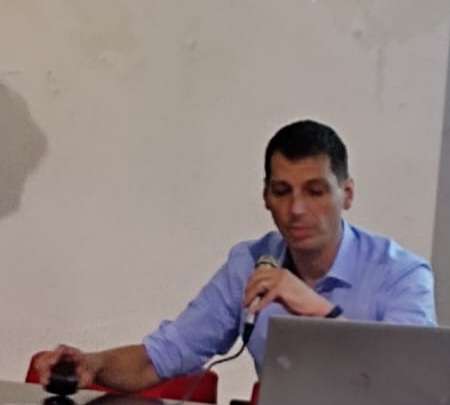Studying at the University of Verona
Here you can find information on the organisational aspects of the Programme, lecture timetables, learning activities and useful contact details for your time at the University, from enrolment to graduation.
Academic calendar
The academic calendar shows the deadlines and scheduled events that are relevant to students, teaching and technical-administrative staff of the University. Public holidays and University closures are also indicated. The academic year normally begins on 1 October each year and ends on 30 September of the following year.
Course calendar
The Academic Calendar sets out the degree programme lecture and exam timetables, as well as the relevant university closure dates..
| Period | From | To |
|---|---|---|
| Sem. IA (31.10.16 sosp.lezioni) | Oct 3, 2016 | Nov 12, 2016 |
| Sem. IB | Nov 14, 2016 | Jan 21, 2017 |
| Sem. IIA | Feb 27, 2017 | Apr 22, 2017 |
| Sem. IIB | Apr 24, 2017 | Jun 10, 2017 |
| Period | From | To |
|---|---|---|
| Festa di Ognissanti | Nov 1, 2016 | Nov 1, 2016 |
| Festa dell'Immacolata | Dec 8, 2016 | Dec 8, 2016 |
| Vacanze Natalizie | Dec 23, 2016 | Jan 7, 2017 |
| Vacanze Pasquali | Apr 14, 2017 | Apr 18, 2017 |
| Festa della Liberazione | Apr 25, 2017 | Apr 25, 2017 |
| Festa dei Lavoratori | May 1, 2017 | May 1, 2017 |
| Festa del Santo Patrono - San Zeno | May 21, 2017 | May 21, 2017 |
| Festa della Repubblica | Jun 2, 2017 | Jun 2, 2017 |
| Vacanze Estive | Aug 14, 2017 | Aug 19, 2017 |
Exam calendar
Exam dates and rounds are managed by the relevant Culture and Civilisation Teaching and Student Services Unit.
To view all the exam sessions available, please use the Exam dashboard on ESSE3.
If you forgot your login details or have problems logging in, please contact the relevant IT HelpDesk, or check the login details recovery web page.
Should you have any doubts or questions, please check the Enrollment FAQs
Academic staff

Mastrocinque Attilio
 attilio.mastrocinque@univr.it
attilio.mastrocinque@univr.it
 +39 045802 8386
+39 045802 8386
Study Plan
The Study Plan includes all modules, teaching and learning activities that each student will need to undertake during their time at the University.
Please select your Study Plan based on your enrollment year.
1° Year
| Modules | Credits | TAF | SSD |
|---|
2° Year activated in the A.Y. 2017/2018
| Modules | Credits | TAF | SSD |
|---|
| Modules | Credits | TAF | SSD |
|---|
| Modules | Credits | TAF | SSD |
|---|
Legend | Type of training activity (TTA)
TAF (Type of Educational Activity) All courses and activities are classified into different types of educational activities, indicated by a letter.
Ancient epigraphy (2017/2018)
Teaching code
4S003304
Teacher
Coordinator
Credits
6
Language
Italian
Scientific Disciplinary Sector (SSD)
L-ANT/03 - ROMAN HISTORY
Period
First half of Semester 1 , Second half of Semester 1
Learning outcomes
The course aims to provide students with the basic tools for reading, understanding and commenting ancient inscriptions. Secondly, it will provide them with the necessary skills to use the inscriptions as fundamental sources for studying ancient history. For this purpose, thanks to practical exercises in classroom and in museum, students will learn the use of the epigraphic corpora and the techniques of consultation of the most important epigraphic databases.
Program
- Ancient epigraphy: definition, topics, limits.
- History of ancient epigraphy
- Work tools.
- The Inscription as a monument.
- The iscription as a document.
- Relief, filing, editing of the inscriptions.
- The taxonomy of the inscriptions.
- The instrumentum inscriptum.
Didactic methods
For attending students, teaching methods consist of lectures dedicated to the transmission of
Basic notions and basic tools of work. Added to this are the practical exercises in the classroom and museum. Attending students will receive at the first lesson the complete calendar of didactic activities with the dates and topics covered in the lessons provided by the time, the classroom and the indication of possible suspension for academic reasons.
Throughout the academic year, there is also available the individual reception service handled by the teacher at the timetable indicated on the teacher's web pages.
With regard to non-attending students, teaching methods consist of a support teacher for personal study of the manual during the talks, also attached to the outside the scheduled time and providing, on request, additional teaching materials.
| Author | Title | Publishing house | Year | ISBN | Notes |
|---|---|---|---|---|---|
| A. Buonopane | Manuale di epigrafia latina | Carocci, Roma | 2009 |
Examination Methods
Verification of learning outcomes for both attending and non-attending students is an oral interview.
Objectives of the verification test
- Verify the amplitude and depth of the acquired knowledges.
- Check the analytical and argumentative capabilities
- Check the skills acquired reading and commenting a simple epigraphic text.
The interview will cover al the program and will be in Italian, also for ERASMUS students. The vote will be expressed in 30/30.
Erasmus students should contact in advance the teacher.
Type D and Type F activities
Modules not yet included
Career prospects
Module/Programme news
News for students
There you will find information, resources and services useful during your time at the University (Student’s exam record, your study plan on ESSE3, Distance Learning courses, university email account, office forms, administrative procedures, etc.). You can log into MyUnivr with your GIA login details: only in this way will you be able to receive notification of all the notices from your teachers and your secretariat via email and soon also via the Univr app.
Graduation
Linguistic training CLA
Doppio Titolo
Il doppio titolo è un programma integrato di studio attivato a seguito di una convenzione fra l’Ateneo di Ferrara e una Università straniera.Nell'ambito del corso di laurea magistrale in Quaternario, preistoria e archeologia è attivo un progetto di doppio titolo erogato in partnership con il Master “Mention Archéologie, sciences pour l’archéologie parcours Arts, Sociétés, Environnements de la Préhistoire et de la Protohistoire: Europe, Afrique” dell’Université de Toulouse Jean Jaurès (Francia)
Gli interessati potranno candidarsi al progetto come previsto dal bando di selezione.
Per ulteriori informazioni si rimanda al bando di ammissione del doppio titolo:
http://www.unife.it/interfacolta/lm.preistoria/doppio-titolo


